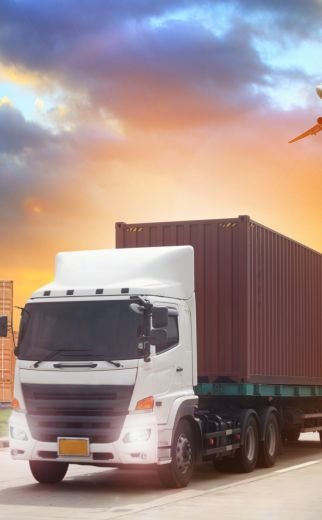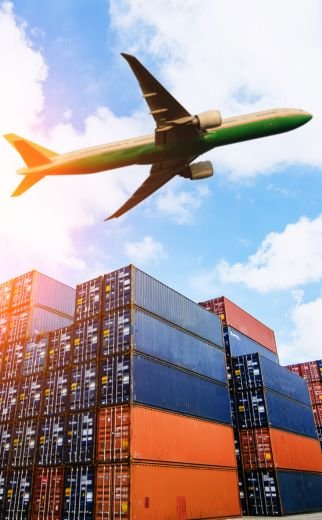Empowering Businesses with Excellence
Leading Outsourcing Solutions in IT, Finance, Back Office and Operations for Leading Companies



The logistics and transportation industry is the backbone of the U.S. and Canadian economies, playing a critical role in facilitating trade, supporting supply chains, and driving economic growth. However, the industry is under intense pressure due to rising operational costs, evolving customer expectations, labor shortages, and technology disruptions.
This white paper explores the top challenges impacting the industry and presents how Global Competency Centers (GCCs)—such as the one operated by Global Wave Dynamics (GWD) in India—can offer strategic, cost-effective solutions. By leveraging offshore capabilities, logistics and transportation companies can streamline operations, enhance visibility, and scale sustainably.
Logistics and transportation companies in the U.S. and Canada are navigating one of the most transformative and challenging periods in decades. Economic pressures, changing trade policies, and the need for rapid digital transformation are making it essential to rethink how logistics operations are managed and delivered. The Global Competency Center (GCC) model offers an opportunity to shift non-core operations offshore, freeing internal teams to focus on strategic priorities.
The logistics industry across North America is valued at over $2 trillion and employs millions of workers across trucking, warehousing, freight forwarding, and last-mile delivery services. Canada alone sees over 70% of its trade pass through U.S. logistics corridors. Despite its scale, the industry is still fragmented and often lacks technological harmonization.
The most immediate concern for logistics firms is labor. The U.S. is facing a shortage of over 80,000 truck drivers, with similar challenges in warehousing and back-office support roles. Canada reports driver retirements and slow replacements, threatening supply chain continuity.
Impact: Increased labor costs, capacity limitations, and overworked staff.
Fuel prices, insurance premiums, fleet maintenance, and compliance costs have surged post-pandemic. Additionally, inflationary pressures and rising wages in North America are shrinking margins.
Impact: Profitability erosion and higher costs passed on to customers.
Many mid-sized logistics firms still operate using spreadsheets, legacy Transportation Management Systems (TMS), or outdated ERP solutions. Integration across systems (TMS, WMS, CRM) is limited or nonexistent.
Impact: Reduced visibility, process inefficiencies, and poor customer experience.
From the COVID-19 pandemic to geopolitical tensions and natural disasters, North American logistics has seen severe disruptions. Port congestion, inventory imbalances, and delayed shipments are now routine challenges.
Impact: Missed SLAs, lost revenue, and unhappy customers.
Both countries have introduced regulations targeting carbon emissions, ESG compliance, and fleet electrification. While essential for long-term sustainability, these changes require significant investment.
Impact: Regulatory complexity and high capital outlay.
Customers (B2C and B2B) now demand real-time updates, next-day delivery, seamless order tracking, and proactive communication. The Amazon effect has raised the bar across industries.
Impact: Higher operational pressure and the need for 24/7 support.
The international nature of freight forwarding introduces varied documentation needs—from Bills of Lading to customs declarations. Mismanagement can lead to delays, penalties, or lost cargo.
Impact: Legal exposure and reputational damage.
A Global Competency Center is a dedicated offshore team that provides specialized services—ranging from IT, operations, finance, and customer service—at significantly lower costs, but with high process quality and round-the-clock availability.
Global Wave Dynamics operates a robust GCC in India, designed specifically to support logistics and transportation clients in the U.S. and Canada.
Solution: Offshore support for dispatch, load planning, data entry, and customer communication reduces staffing pressure in North America and keeps operations running smoothly 24/7.
Solution: Offshore teams provide up to 70% cost savings on non-core tasks like billing, order processing, freight audit & payment, and AR/AP management.
Solution: GWD’s GCC offers software development, TMS/ERP configuration, API integrations, and RPA implementations—helping companies digitally transform without hiring expensive local tech talent.
Solution: Our team monitors port congestion, freight status, carrier updates, and proactively adjusts routing plans—helping clients stay one step ahead of delays.
Solution: GWD assists with sustainability reporting, data collection for ESG compliance, and analytics on fuel usage and emissions across shipments.
Solution: With 24/7 support from India, we provide real-time tracking, shipment status updates, and automated notifications—keeping shippers and consignees informed.
Solution: Trained professionals at GWD’s GCC handle Bills of Lading, customs documents, export declarations, and compliance filings with accuracy and speed.
The logistics and transportation sectors in the U.S. and Canada face mounting challenges that require both strategic agility and operational efficiency. Global Competency Centers—especially when built and managed by experienced partners like Global Wave Dynamics—offer a practical, proven way to address these issues head-on.
By shifting administrative burden, tech development, customer support, and compliance offshore, logistics firms can focus on what matters most: delivering goods faster, more reliably, and at lower cost.
To explore how Global Wave Dynamics can help transform your logistics operations:
Ashutosh Shukla (Chief Business Officer)
📧ashukla@globalwave.ai | 📞 +1 908 655 2587
Leading Outsourcing Solutions in IT, Finance, Back Office and Operations for Leading Companies
Global Wave Dynamics @ 2024. All Rights Reserved.